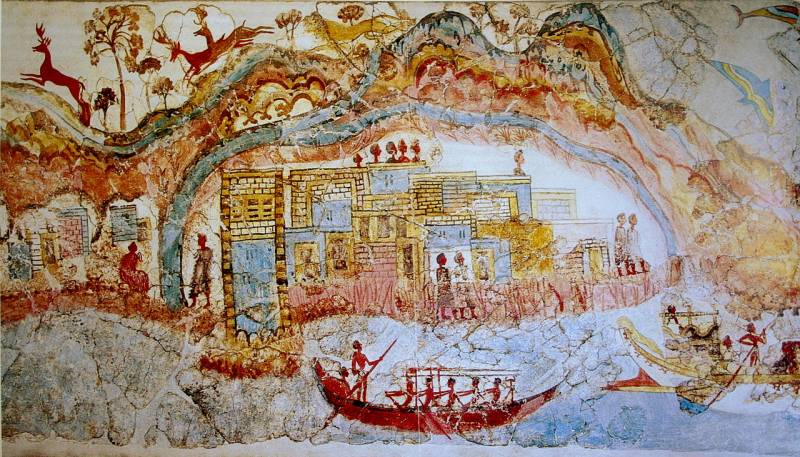The ancient site of Akrotiri, often referred to as the "Minoan Pompeii," offers a remarkable glimpse into the sophisticated world of the Minoan civilization. Preserved under layers of volcanic ash from the catastrophic eruption of Thera (modern-day Santorini) around 1600 BCE, this archaeological treasure has provided invaluable insights into Bronze Age Aegean culture.
Preservation Under Volcanic Ash
The sudden eruption of Thera buried Akrotiri in a thick layer of pumice and ash, much like Pompeii was preserved by Vesuvius centuries later. This natural preservation sealed entire buildings, frescoes, pottery, and even drainage systems, allowing archaeologists to reconstruct the daily life, trade networks, and artistic achievements of the Minoans with remarkable accuracy.
Architectural and Artistic Marvels
Akrotiri reveals an advanced urban center with multi-story buildings, elaborate frescoes, and an intricate plumbing system—demonstrating the technological and artistic prowess of its inhabitants. The vibrant frescoes depict landscapes, animals, and human figures, shedding light on Minoan aesthetics, religious beliefs, and social structure.
A Hub of Trade and Culture
Strategically located in the Aegean, Akrotiri was a thriving port city engaged in extensive trade with Crete, Egypt, and the Near East. Artifacts such as pottery, tools, and imported goods indicate a highly connected society that played a crucial role in Mediterranean commerce.
Significance in Understanding Minoan Civilization
The excavation of Akrotiri has revolutionized our understanding of Minoan culture, highlighting their architectural ingenuity, artistic expression, and economic influence. Unlike other Minoan sites, no human remains have been found, suggesting that the inhabitants may have had advance warning of the eruption and evacuated.
Conclusion
Akrotiri stands as one of the most significant archaeological sites of the ancient world, offering a unique window into the Minoan civilization. Its exceptional preservation continues to captivate researchers and historians, deepening our knowledge of this influential Bronze Age culture.







